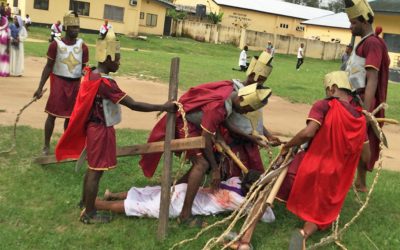Policing Indigenous Dissent: Trends Behind Wet’suwet’en Raid
Photo by Michael Toledano
By Miles Howe and Jeffrey Monaghan
Editor’s Note: This article was originally published in January 2019, and yet, it remains as relevant today. The authors use their research to provide historical context for the dynamics between the RCMP and Indigenous movements, and describe how the current government fits into this long history. It’s an important piece that points out how even the use of certain words can characterize and misrepresent Indigenous peoples, and underlines the role of language in policing.
The recent raid against the Gitdumt’en camp on unceded Wet’suwet’en territory grabbed national attention, focusing much-needed discussion on land claims, pipelines and the question of police militarization.
What our work emphasizes is that the RCMP interprets risk—and ascribes a ranking system—based upon issues largely unrelated to criminality.
Critical voices and images, from this raid and beyond, continue to challenge the Trudeau government’s claims to respect “nation to nation” relationships. In a press release issued before launching the raid on the Gitdumt’en blockade, the RCMP emphasized that they are “impartial and … respect the rights of individuals to peaceful, lawful and safe protest.” In spite of these claims of impartiality, our research points toward the broader context of the long-standing adversarialism embedded within RCMP policing culture to explain the police raid.
In our study, recently published by the Canadian Journal of Sociology, we assessed a number of RCMP reports and documents that evaluate protest (and protestor) risks. These backstory documents, accessed through the Access to Information Act, shed light on how the RCMP interprets Indigenous movements, particularly in terms of what qualifies as a risk.
What our work emphasizes is that the RCMP interprets risk — ascribes a ranking system — based upon issues largely unrelated to criminality. Rather, the emphasis appears to be centred upon the ability of a protest movement to craft and disseminate its narrative; risk scores are ascribed for social media acumen, networking ability, even the telegenic appeal of a protest leader. Overall, we interpret the RCMP’s understanding of risk to be synonymous with the potential of a protest movement’s success. In and of itself this becomes extremely troubling, as it suggests that the RCMP’s mandate has warped toward working to undermine protest movements, regardless of their legality.
Further, the RCMP’s interpretation of “success” as “risk” has profound implications. First and foremost, when policing agencies label groups and individuals as “risky” they are at heightened likelihood of police intervention and violence. This is particularly true with Indigenous communities in general and Indigenous protests in particular. More broadly, the labelling of social movements that are successful at challenging issues of injustice allows policing agencies to dramatically increase surveillance and the potential repression of those groups.
This is particularly relevant in terms of the Wet’suwet’en blockades that have been targeted by surveillance and regularly labelled by the RCMP as “extremists” and “splinter groups” over the past several years. While the RCMP categorize the Wet’suwet’en’s successfulness of challenging pipelines through their traditional territories as “risks”, the RCMP’s systematic use of politically charged labels such as “extremist” is a deliberate attempt to delegitimize their claims to title. Far from the RCMP being “impartial” actors, our research points to long-standing animosities within policing institutions toward Indigenous protests.
Understanding these broader trends helps explain how campaigns of surveillance, risk analysis and profiling lead toward the police actions taken against the Gitdumt’en camp this past week.
Find the full research paper here: Strategic Incapacitation of Indigenous Dissent: Crowd Theories, Risk Management, and Settler Colonial Policing.
Miles Howe is a PhD candidate in the department of Cultural Studies at Queen's University. His research focuses on the history of counterinsurgency in Canada.
Jeffrey Monaghan is an assistant professor of criminology at Carleton University, Ottawa, Canada.



